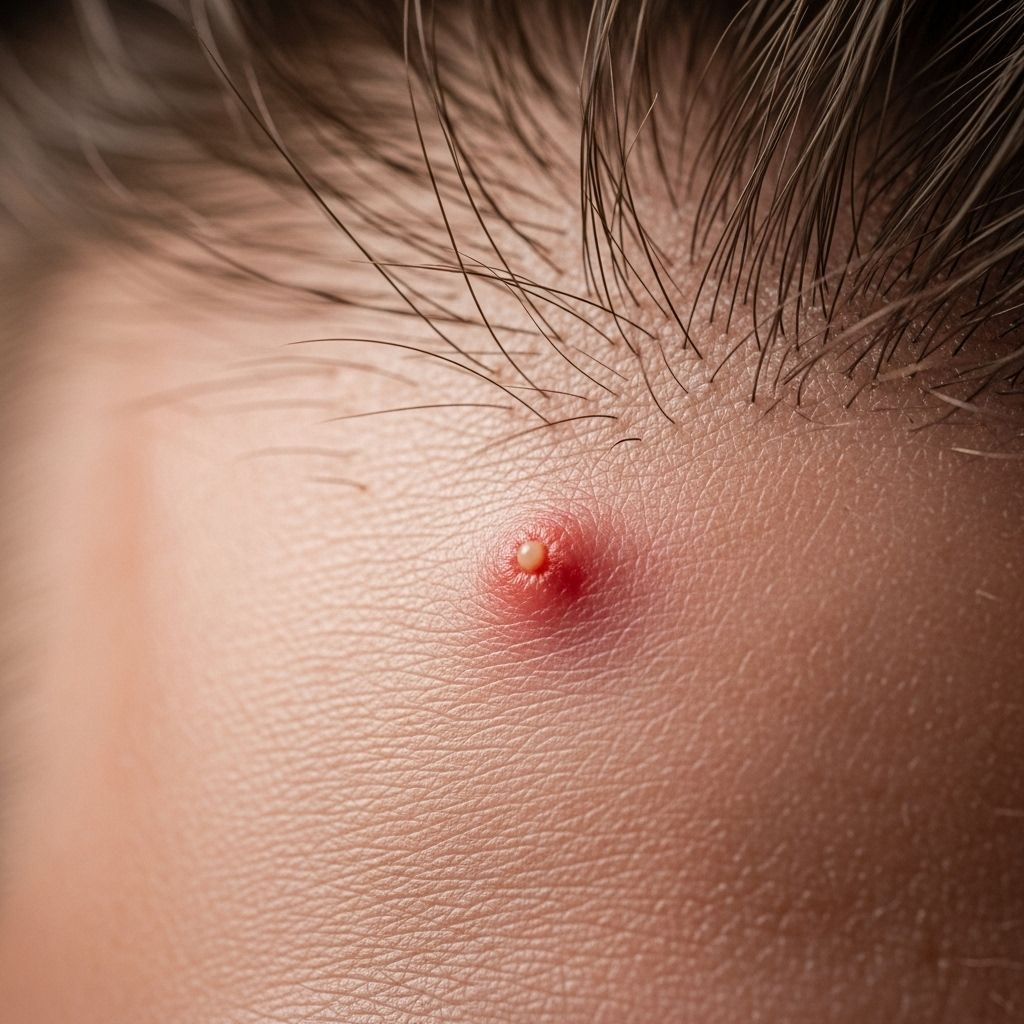Tackling Scalp Acne
Effective Ways to Manage and Treat Scalp Acne for a Healthier Scalp

Scalp acne can be a frustrating condition, often leading to discomfort and unsightly pimples on the scalp. Understanding what causes scalp acne and finding the right treatments is crucial for managing and preventing it.
## Introduction to Scalp AcneScalp acne occurs when pores on the scalp become clogged with dead skin cells, oil, and product buildup, similar to acne on the face. It’s common in individuals with oily hair or those using heavy hair products. Effective treatments often involve shampoos with active ingredients like salicylic acid, tea tree oil, and zinc.## Best Shampoos for Scalp AcneFinding the right shampoo is key to treating scalp acne. Here are some top picks:-
Neutrogena T/Sal Therapeutic Shampoo
: Contains 3% salicylic acid, which helps break down clogged pores and exfoliate the scalp. However, it can be drying, especially for 3a-4c hair types, so use it sparingly and follow with a deep conditioner.-Oribe Serene Scalp Anti-Dandruff Shampoo
: Features 2% salicylic acid to gently exfoliate the scalp, along with niacinamide and glycerin to reduce inflammation and hydrate. It’s well-suited for those needing a balancing act between exfoliation and hydration.-Revolution Haircare Salicylic Acid Clarifying Shampoo
: Ideal for oily hair, this shampoo uses salicylic acid to clarify and exfoliate the scalp. Choosing the Right ShampooWhen selecting a shampoo for scalp acne, look for ingredients that help exfoliate and reduce inflammation. Salicylic acid is a popular choice as it breaks down oil and unclogs pores. For a more gentle approach, consider sulfate-free shampoos with anti-inflammatory properties like tea tree oil. Avoid shampoos containing oils or fragrances if you have sensitive skin.## Causes of Scalp AcneScalp acne can result from various factors, including:-Product Buildup
: Using too many hair products or not washing them out properly can lead to clogged pores. –Sweat and Oil
: Frequent sweating or oily hair can contribute to acne on the scalp.-Diet
: Some foods, particularly those high in sugar or dairy, might exacerbate acne.## Home Treatments for Scalp AcneIn addition to medicated shampoos, there are several home treatments you can try to manage scalp acne:-Tea Tree Oil Treatments
: Apply a few drops of tea tree oil to your scalp and massage it in. Leave it on for a few minutes before washing with a gentle shampoo. Tea tree oil has antibacterial properties that can help reduce acne-causing bacteria.-Salicylic Acid Serums
: For a more targeted approach, consider using a leave-on salicylic acid serum on your scalp. This can help exfoliate the skin without the need for a full shampoo treatment.-Warm Compresses
: Apply a warm compress to the affected area to help open up pores and loosen clogs.## How to Prevent Scalp AcnePreventing scalp acne involves maintaining good scalp hygiene and being mindful of your hair care routine:-Regular Washing
: Wash your hair frequently, especially after exercise or on hot days, to remove sweat and product residue.-Avoid Heavy Products
: Minimize the use of heavy or oily hair products that can clog pores.-Dietary Changes
: Consider a balanced diet with reduced intake of processed foods and dairy products.## Frequently Asked Questions (FAQs)Q: What causes scalp acne?
Scalp acne is often caused by clogged pores due to product buildup, sweat, and the natural oils produced by the scalp.
Q: How often should I use a medicated shampoo for scalp acne?
Use a medicated shampoo once or twice a week, depending on your hair type and the severity of your scalp acne. Always follow with a deep conditioner to avoid dryness.
Q: Can I use scalp acne treatments on my face?
While some ingredients like salicylic acid can be used on both the scalp and face, it’s best to use face-specific products for facial acne to avoid irritation and ensure compatibility with your skin type.
Q: Are there any natural remedies for scalp acne?
Yes, natural remedies such as tea tree oil and aloe vera can help soothe and reduce scalp acne. However, always do a patch test to ensure you’re not sensitive to these ingredients.
Treatment Options Beyond Shampoos
If shampoos do not provide sufficient relief, consider other treatment options:-
Topical Treatments
: Products containing benzoyl peroxide or clindamycin can be applied directly to pimples to reduce bacterial infections. Be cautious with benzoyl peroxide, as it may bleach your hair.-Prescription Medications
: In severe cases, oral antibiotics or retinoids may be prescribed by a dermatologist to address underlying causes of scalp acne.In conclusion, managing scalp acne involves a combination of good scalp hygiene, using the right shampoos, and possibly exploring additional treatments. By understanding the causes and implementing these strategies, you can effectively reduce and prevent scalp acne.References
- https://www.cosmopolitan.com/style-beauty/beauty/g29536390/best-scalp-acne-shampoo/
- https://www.cosmopolitan.com/uk/beauty-hair/hair/a45136849/scalp-acne/
- https://www.prevention.com/beauty/skin-care/a63025367/scalp-pimples-acne/
- https://intothegloss.com/2019/12/carly-cardellino%20beauty%20routine/
- https://www.thegoodtrade.com/features/natural-and-organic-hair-care-brands/
- https://www.womenshealthmag.com/beauty/a19947497/best-shampoos-for-thinning-hair/
- https://www.cosmopolitanme.com/beauty/i-just-found-the-best-shampoo-ive-ever-used
Read full bio of medha deb












